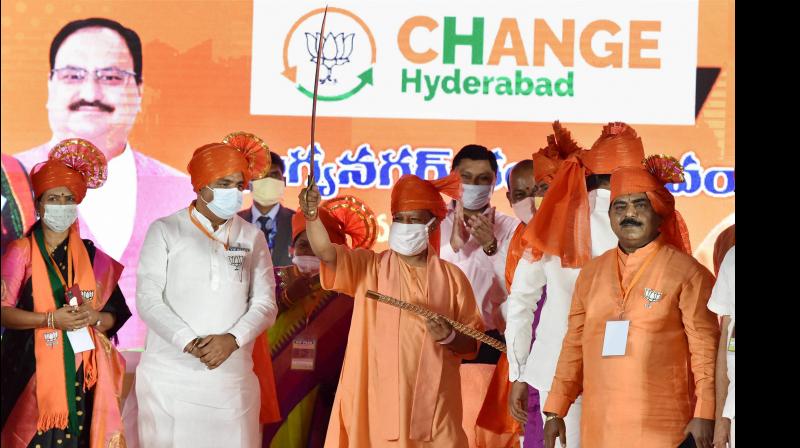D.N.V. Kumara Guru | Who is my corporator?
We need a city government that can take ownership of co-creating Hyderabad as a city of global standards

I do a simple experiment with my colleagues each time general elections are around the corner. I pose a few simple questions to test their “civic quotient”. My favourite is a set of three questions that require them to name their current MP, MLA and corporator.
Quite a few of them know their MP, some know their MLA, but very few know the name of their corporator. In the food chain of elected representatives, corporator, even though at the bottom; is the most powerful when it comes to issues of day-to-day matters like bijli, paani and sadak.
As citizens, the first level of government we interface with is municipal corporation. Think of everything that matters to us personally on a day-to-day basis, which collectively contributes to making our city a more liveable one. Without exception, almost all of these issues come under purview of the city government. Whether you want a permit to build a new house, a park in your locality, a better garbage collection system, or a new road, the solution lies with municipal corporation. By extension, corporator is our first point of contact.
In the tweet crazy world that we live in, we find it convenient to raise the issue of a broken water pipe with our Member of Parliament, if not our MLA. Often, MPs and MLAs have teams to monitor their social media accounts. Their quick response creates an impression that the issue has been addressed by them. What we do not realise is that they do not necessarily have the powers to address these issues. In many cases, they forward it to the corporator concerned to take care of it.
In the three-tier governance system that we have in our democracy, the time and resources of an MP and MLA are better utilised if they do what they have to – frame policies that concern the country and the state. We, as ill-informed citizenry, often force them to disproportionately allot their time to issues that aren’t their primary concern. And, when things don’t work out, we love to blame the system.
Our corporator lives in our neighbourhood and is easily accessible. There is no “outsider” syndrome, which is commonplace during Lok Sabha general elections and at times during state assembly elections. Yet, we do not know her name, and we probably don’t care. Why this apathy? Do we simply not care or we do not know? Perhaps, it is a bit of both.
In a couple of days, the twin-city populace will exercise their franchise for electing representatives to 150 wards in the Greater Hyderabad Municipal Corporation. Every election is a matter of prestige for incumbents and one of opportunity for those in opposition. This election is no different, and we have seen some high voltage campaigning. How will this impact the voting percentage? Will we see an improvement over the 45% turnout of 2016 elections?
Nearly 7.4 million voters have the power to decide the fate of their city by choosing the best from a pool of 1,122 candidates who are in the fray this year. Yet, we do not see the same level of energy or enthusiasm about municipal elections amongst voters. There are no major campaigns to increase the voter percentage that we see during general elections. It is time to change that.
Hyderabad aspires to be a smart city. It has all the potential to be so. It is one of the few cities, where old world charm rubs shoulders with the modern tech ecosystem effortlessly, which is so quintessentially Hyderabadi. We need a city government that can take ownership of co-creating Hyderabad as a city of global standards; a city government led by a Mayor, who can take charge of the transformation process. More importantly, we need an electorate that is aware, responsible, and one that does not shy away from holding its corporators accountable. We owe it to ourselves to vote in the elections on December 1.

